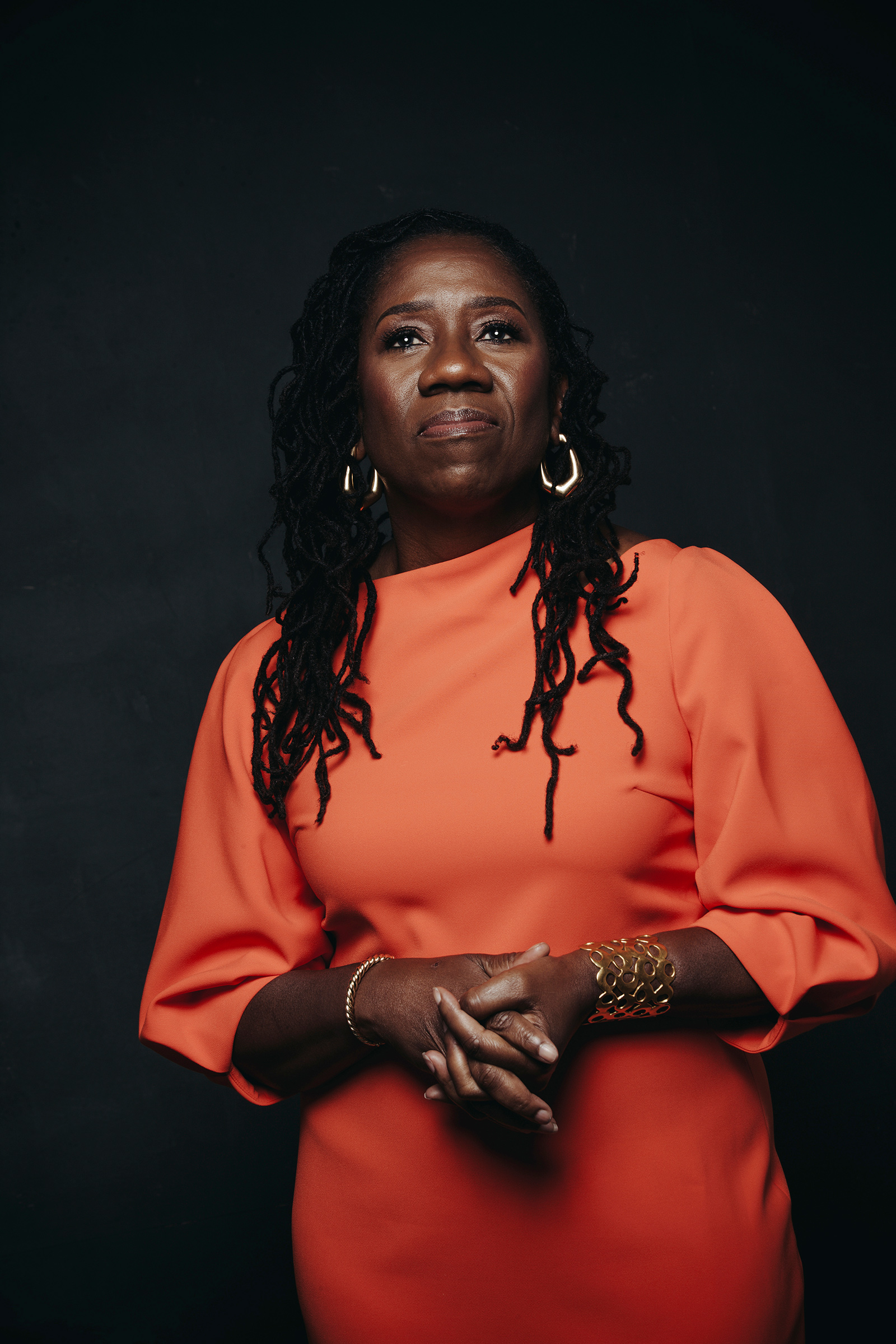In January 2019, four Black and Latina girls were walking down the hallway of their middle school in Binghamton, N.Y., laughing, when their principal stopped them. He brought the 12-year-olds to the school’s health office where, one by one, they were given sobriety tests and searched, alleges a lawsuit filed on behalf of their parents by the NAACP Legal Defense and Educational Fund (LDF). The school denies the allegation of inappropriate searches, as well as the premise of the litigation: that racial and gender bias led school officials to read playful behavior as suspicious. The case, which is ongoing, is emblematic of LDF’s work under its president and director-counsel, Sherrilyn Ifill, who has strived to emphasize gender equity’s significance in the fight for racial justice and education access.
For nine years, Ifill has helmed the storied civil rights group with an intersectional focus. “All of our work affects Black women and girls,” she says. Ifill oversaw a huge expansion of LDF, nearly tripling the staff, and she cemented it as an essential player in battles over voting rights, police reform, criminal justice, and more—hoping to ensure the 81-year-old organization stays as influential in this century as it was in the last.
As she prepares to step down on March 14, Ifill, 59, says that beyond each legal battle, advocacy effort, and organizing campaign, she believes her leadership was a victory of its own. “I think it has mattered, my voice not only as a Black civil rights leader but as a Black woman civil rights leader, to speak with power, authority, and knowledge,” she says. “It is important to show that women who have chosen a path of service [can] rise to the highest level.”
Read More: Sherrilyn Ifill Says This Is the Time for ‘Transformative’ Change in America
LDF has always known “the gender fight to be our fight,” Ifill says. In 1971, the organization successfully litigated one of the earliest sex-discrimination cases under Title VII of the Civil Rights Act in the Supreme Court. Throughout her tenure, Ifill has carried the mission of gender equity forward through the rise of the Black Lives Matter movement, Donald Trump’s presidency, and 2020’s racial reckoning, highlighting ways that LDF’s goals intersect with the needs of Black women and girls. In 2014 and 2018, LDF released reports on Black girls’ development throughout their education, examining the ways the school-to-prison pipeline affected their sense of self-worth and ambition. The group has represented girls allegedly unfairly penalized in school, like the Binghamton four, and represented a Black woman who alleges she was denied a job for wearing natural hair. Other elements of LDF’s work, such as challenges to voting restrictions and partisan gerrymandering, relate to gender issues in more nuanced ways.
But those topics, too, Ifill approaches through a gender-equity lens. “Ensuring political participation is about power,” Ifill says. “It is about power across racial lines, of course, but it is also about gender lines.”
There’s still work to be done. Ifill is watching the challenges to reproductive rights and rising book bans with deep concern. But a new generation of litigators is helping take on those fights, and Ifill says she hopes she’s served as an example of what a Black woman can achieve. “I don’t feel the need to perform power,” she says. “I think power comes with your excellence, and people will see it.”
- The 100 Most Influential People of 2024
- The Revolution of Yulia Navalnaya
- 6 Compliments That Land Every Time
- Stop Looking for Your Forever Home
- If You're Dating Right Now, You're Brave: Column
- The AI That Could Heal a Divided Internet
- Fallout Is a Brilliant Model for the Future of Video Game Adaptations
- Want Weekly Recs on What to Watch, Read, and More? Sign Up for Worth Your Time
